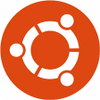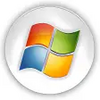A utility that allows you demo applications without installing them onto your computer
A utility that allows you demo applications without installing them onto your computer
Vote: (5 votes)
Program license: Free
Developer: Cameyo
Version: 3.1.1446
Works under: Windows
Vote:
Program license
(5 votes)
Free
Developer
Version
Cameyo
3.1.1446
Works under:
Windows
Pros
- Runs applications without the need for installation
- Creates portable application versions accessible via a web browser
- Allows cross-platform usage of Windows software
- Offers data encryption and various virtualization modes
- Facilitates developer demonstrations with dedicated cloud servers
Cons
- May require a learning curve for new users
- Performance depends on system specifications
- Advanced features limited to the commercial version
Virtual app functionality without the installation hassle.
Introducing Cameyo
In an era where digital efficiency is paramount, Cameyo emerges as a powerful tool for users and developers seeking to utilize applications without the weight of installation. Known for its application virtualization capabilities, Cameyo operates by creating portable versions of software that can be launched directly from a web browser. This ability not only saves time and system resources but also provides versatility in accessing and demonstrating software across various platforms.
Getting Started with Cameyo
At its core, Cameyo is designed to deliver simplicity and ease of use. The software condenses applications into a single executable (EXE) file, which can be copied and executed on any compatible Windows system. There's no need to go through setup processes—the applications are ready to use right out of the virtual box. With an emphasis on accessibility, the platform allows users to publish their software to a dedicated cloud server. This solution is especially beneficial for software developers, who can showcase their products to potential clients directly through a website, as Cameyo operates smoothly on any device with an HTML5-compatible browser, sans plugins.
Cameyo's Virtualization Process
Cameyo begins its virtualization process by capturing a system snapshot before and after software installation. By analyzing the differential, the software comprehends the changes necessary for the application to run independently of an installation. This meticulous methodology ensures that the virtualized applications are stable and capable of performing in various environments.
Distinguishing Features of Cameyo
One of the most compelling attributes of Cameyo is its range of unique features, setting it apart from other virtualization tools:
- Data Encryption: Cameyo safeguards data within its virtual apps, an element that is invaluable for users concerned with security.
- Cloud Packaging: The ability to package and deploy applications via the cloud enhances flexibility, enabling access to apps from virtually anywhere.
- Virtualization Modes: Users can choose between RAM and Disk virtualization modes depending on their performance and storage preferences.
- User Restrictions: In-built controls like scripting and password protection add layers of governance over how the virtual applications are used.
- Data Portability: Cameyo facilitates saving data and settings to portable solutions such as USB drives or cloud storage services like Dropbox.
These functions coalesce to make Cameyo a cost-effective competitor to more established names such as VMware ThinApp, presenting users with a valuable alternative in the application virtualization space.
Final Verdict
Cameyo stands out as a comprehensively equipped virtualization platform that adeptly balances operational effectiveness with user-centric design. Accessibility becomes a notable theme, as the software transcends traditional platform boundaries, allowing Windows software to be run on non-Windows systems with minimal friction. The personal use version provides an appetizing taste of the platform’s capabilities, while commercial offerings expand the utility to a wider professional audience.
Pros
- Runs applications without the need for installation
- Creates portable application versions accessible via a web browser
- Allows cross-platform usage of Windows software
- Offers data encryption and various virtualization modes
- Facilitates developer demonstrations with dedicated cloud servers
Cons
- May require a learning curve for new users
- Performance depends on system specifications
- Advanced features limited to the commercial version




